Today as we observe Labor Day, celebrating the social and economic achievements of American workers.
0 Comments
Empowerment is crucial for sexual assault survivors and education is a key component. This month our focus is Post Traumatic Stress Disorder (PTSD), which is quite common among sexual assault survivors. Our aim is to help survivors and those who support them in their recovery by gaining a greater understanding to this reaction or response to trauma.
According to the Mayo Clinic, Post-traumatic stress disorder (PTSD) is a mental health condition that's triggered by a terrifying event — either experiencing it or witnessing it. Symptoms may include flashbacks, nightmares and severe anxiety, as well as uncontrollable thoughts about the event.1 Read Full Article: Post-traumatic stress disorder (PTSD) - Symptoms and causes - Mayo Clinic 1 Used with permission of Mayo Foundation for Medical Education and Research, all rights reserved. The trauma from being sexually assaulted can be devastating, leaving you terrified, humiliated, alone, beleaguered by night terrors, flashbacks, and other unpleasant memories. Healing from sexual assault takes time and requires some understanding.
Healing is a Continuum
Healing is not forgetting
>During healing, you may gain the ability to cope with memories and better navigate your emotions. The importance of Dialogue
>Make sure that you seek out trusted, supportive individuals to talk with (close friend). When to Consider Talk Therapy
Strong Indicators for the need of Psychotherapy are:
1 Triggers: The majority of sexual assault survivors have experienced disturbing and painful memories of their assault(s). The survivor is transported back to the original trauma event, causing the survivor to experience overwhelming emotions. Resources: Rape, Abuse and Incest National Network (RAINN) 1 800 656-4673 (HOPE) National Suicide Prevention Lifeline 1 800 273-8255 Donate to Cry Heard Support Inc: Click Below http://www.cryheardsupport.com/about.html If you are contemplating sharing your Survivor story, some pre-planning needs to take place for your wellbeing.
To begin, remind yourself that it is your story. Don’t allow anyone to pressure you to share your survivor story before you are ready. Know that you don't need to share your survivor story to be involved in ending sexual violence (crimes like rape, sexual assault, sexual abuse, human trafficking). It is helpful to have pre-planned support if you decide to share your story. When you feel inspired to speak as a survivor of sexual violence, when, where, how, inclusive of how often is your choice (think empowerment). Many Options Available to Share Your Story There are many options in communicating your story, in front of a public audience is just one. Additional options are via written materials, and online communication (social media). Note, if you chose to share your story only in written form, you can do so anonymously or using an alias. If you decide to share your survivor story via the internet, I suggest writing it out first. Be mindful that content can't be removed entirely once online. Before you hit that send button, sit with the content for a while. Ponder how you might feel differently in the future. Ponder What You Want to Accomplish Think about what you intend to accomplish in communicating your story. Choose how, when, and what details you feel comfortable expressing about your experience. What matters the most is not what others want from you, but what has worth and importance for you. If you aim to educate the public, it does not require sharing every detail of your experience. Consider sharing only information that can be tools for combating self-blame, helping the challenge of not being believed, or the weight of keeping the experience a secret, etc. Communicating your story can be empowering and therapeutic (does not replace therapy). It will be beneficial for you to be clear and consider any concerns you might have for yourself, family, significant others, even friends once you share your survivor story. When sharing your story, you don't need to fake being strong or stoic. Tears do not make you weak or indicate that you are not thriving since your abuse. Be Prepared for Responses to Your Story Be prepared when you share your story, there is the possibility of experiencing disturbing, tactless responses from your audience (family, friends, social media, etc.). It is difficult to adequately predict how others will respond, and some survivors have had negative experiences. When speaking publicly (audience), you might be asked uncomfortable questions. Stay clear of triggers (that which provoke memories or feelings connected to trauma). You are in control of the details you want to share about your story. Only answer questions you are comfortable answering at that time. Some individuals in your audience may be triggered by your experience, so it is best before sharing your account to communicate to individuals that might be triggered, that if they feel the need to leave the room it is ok. A Word of Caution If you are engaged in a criminal or other formal proceeding, related to your sexual violence experience, it would be wise to seek legal counsel about the possible effects of publicly sharing your experience. Legal consultation will help you steer clear of legal implications when sharing specific details of your experience. Finally, keep in mind that social attitudes, while shifting and improving, still often unfairly blame survivors (female and male) and excuse offenders. Don’t allow that to silence your voice, as you transcend from surviving to thriving. We Want to Hear Your Story If you survived sexual violence, we invite you to share your story anonymously (if desired) Further, by sharing your story it is not only empowering but helps to educate others to take measures to prevent and combat Sexual violence. Share Your Story by Emailing: [email protected] Robert Hendricks, Founder of Cry Heard Support Inc While sexual violence is prevalent, it is also preventable. We all can make a contribution in prevention sexual violence.
Prevention of sexual violence comes through education and dialogue. Our ultimate goal is to take the education and discussion and place it into action. Join us for the Ask Conference on April 13, 2019 at 10:00 a.m. See flyer for further details. Please call 323 778-2309 or Email [email protected] for attendance confirmation. 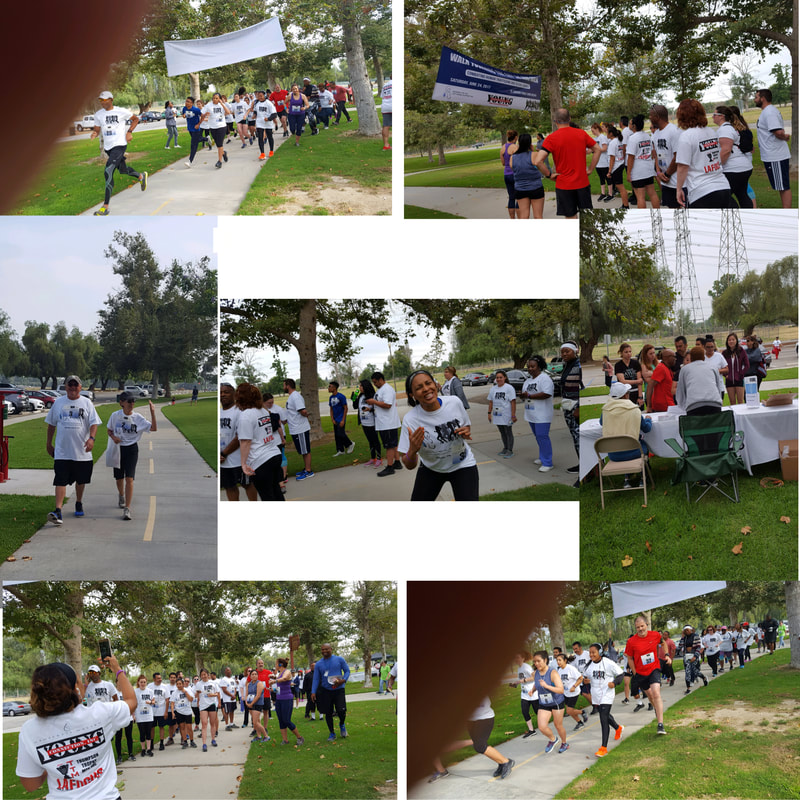 Greetings, Every 98 seconds another person experiences sexual assault. While Human Trafficking is not a clone of sexual assault, they link in many ways as in both cases; victims are subjected to sexual exploitation or forced prostitution. Cry Heard Inc. is a non-profit organization (receives all monies only by tax deductible donations) works towards breaking the silence of sexual assault, human trafficking, and pornography addiction, through publications, public awareness campaigns, and special events. Cry Heard Support Inc., Board members, volunteers, and many others laced up our running shoes to participate in the Cry Heard Support Inc., first annual “Walk towards the Cry 5K Run/Walk”. The event was held on June 24, 2017, at El Dorado Park in Long Beach, California. The goal was to raise funds to increase awareness and prevention of Sexual Assault and Human Trafficking while supporting those victimized individuals help hostage for exploitation (those individuals can be as young as 12 years old). It was a beautiful day and to be our first 5 K run/walk event; it was a wonderfully successful event. With close to 100 runners and walkers we are looking to triple that amount next year. On behalf of our Board of Directors; we want to extend our heartfelt gratitude to all our participants (Runners, walkers). Trina Johnson, thank you for your vital assistance with our advertisement development. To all our Volunteers, Whitney Key Club Volunteers, Teen Reach, you touched our hearts. Allison Hampton, your singing of the National Anthem, was spectacular during our pre-race program! We would further like to thank the following organization: · Dr. Rhonda Hampton, of Reach for Mental Health · Kim Lynch-Howard, Rise Up from Adversities Inc. Thank you so much. · Vanessa Robinson, YWCA. The Fundraising event to help us combat Sexual Assault and Human Trafficking would not have been the success that it was without the financial partnership and sponsorship of: · Geoffrey’s Restaurant/Malibu · Young Connection Printing · Thompson Trophies · L.A. Focus Congratulations to: Blake Wilderman, First Place Runner Elaine McLeod, First Place Walker With our plans to continue with our 5K Run/Walk and other events. We look forward to your participation or your tax dollar donations. For future events visit: Cryheardsupport.com 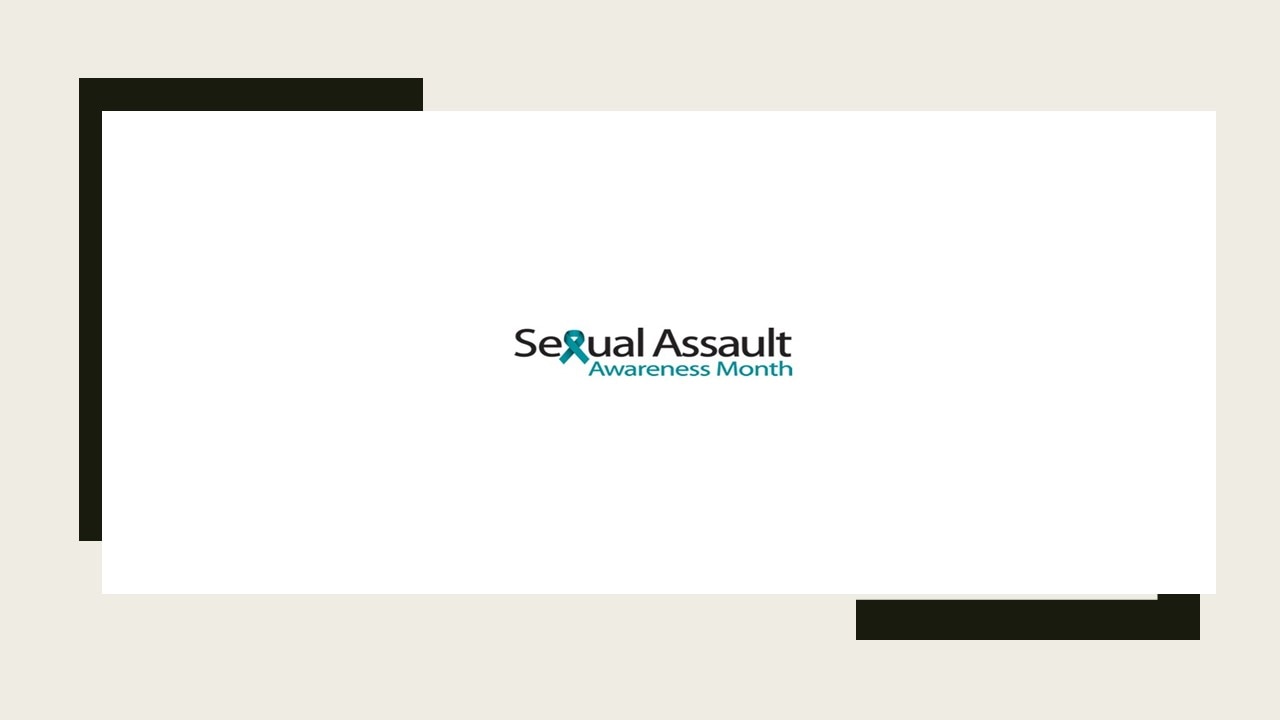 Sexual assault is any type of sexual contact or behavior that occurs without the explicit consent of the recipient. Falling under the definition of sexual assault are sexual activities such as, forced sexual intercourse, forcible sodomy, child molestation, incest, fondling, and attempted rape. 1
Note, The Department of Justice in 2012, formally expanded the definition of rape to include men as victims. 2 According to RAINN (Rape, Abuse & Incest National Network), Every 98 seconds, another person experiences sexual assault. 3 What Should You Do If Sexually Assaulted? (Notes from RAINN) · Find a safe environment-anywhere away from the attacker. Ask a friend to stay with you for moral support. · Preserve evidence of the attack, don't bathe or brush your teeth. Write down all the details you can recall about the attack and attacker. · Get medical attention. Even with no physical injuries, it is important to determine the risk of STDs (Sexually Transmitted Diseases) and/or pregnancy. · To preserve forensic evidence, ask the hospital to conduct a forensic exam (sometimes known as a “rape kit”- https://www.rainn.org/articles/rape-kit). · If you suspect that you may have been drugged, ask for the collection of a urine sample. The sample will need to be analyzed later in a forensic lab. · Report the sexual assault to law enforcement authorities. A counselor can provide information that you will need to understand the process. · Know or remember that it was not your fault. Recognize that healing from sexual assault takes time. · Give yourself the time required, and know that it is never too late to call for help, even if the attack happened years ago. Many victims do not realize they need help until months or years later. Resources: National Sexual Assault Hotline-operated by RAINN (Rape, Abuse & Incest National Network) 1-800-656-HOPE (4673) National Sexual Violence Resource Center (NSVRC) 1-877-739-3895 YWCA 24-Hour Sexual Assault Crisis Line (Greater Los Angeles Calif.) 1-877-Y-HELPS-U (877-943-5778) References: 1 The United State Department of Justice https://www.justice.gov/ovw/sexual-assault 2 https://www.justice.gov/archives/opa/blog/updated-definition-rape 3 RAINN https://www.rainn.org Non-Profit Cry Heard Support Incorporation Come join Cry Heard Support Inc., Board members, volunteers, and many others as we lace up our running shoes to participate in the Cry Heard Support Inc., “Walk Towards the Cry 5K Run/Walk”. The event is scheduled for June 24, 2017, and is an effort to raise funds to increase awareness and prevention of Sexual Assault and Human Trafficking, or "modern-day slavery." Walk Towards The Cry 5K Run/Walk 8:00 a.m. El Dorado Park East Regional Park 7550 E. Spring Street Long Beach, CA 90815 Register Now http://www.active.com/long-beach-ca/running/distance-running-races/walk-towards-the-cry-5k-run-walk-2017 Robert Hendricks
The 26.2 miles runs grew on me as I looked forward to training for them throughout the year. That meant getting up at crazy hours of the morning to get training runs in. Rain or shine, I was out on the street or beach running while normal people were sleeping. I had made changes to my diet to get “mean and lean.” I remember my sister-in-law, who had not seen me for a while, saying to me, “You look like you have AIDS,” because I had lost so much weight in training. Besides the endorphins high and the desire to feel fit, why had I taken up running marathons? I was a sprinter in my early years, why did I turn to distance running? I ran because I could run; yes, I could run long and hard to escape, even for a moment, life's tensions. It was linked to accomplishments and running out the unfinished business of my childhood trauma. I could not run then, but now I had enough endurance to run my personal best, to see the trees, to see the sky, to see the ocean, to remind myself that building endurance was a process. I recalled when I first started training I could not run a half a block without being out of breath. I kept at it with determination, and before long it got easier and easier–half a mile turned into a mile, a mile turned into two. Praise God for using my participation in marathons as a reminder of the miles I had already completed in my life journey: the experience of an alcoholic father, the death of my oldest brother, the shame of being sexually molested, the two near death encounters…”1 Child Sexual Abuse Statistics Studies by David Finkelhor, Director of the Crimes Against Children Research Center, show that · 1 in 5 girls and 1 in 20 boys is a victim of child sexual abuse; · Self-report studies show that 20% of adult females and 5-10% of adult males recall a childhood sexual assault or sexual abuse incident; · During a one-year period in the U.S., 16% of youth ages 14 to 17 had been sexually victimized; · Over the course of their lifetime, 28% of U.S. youth ages 14 to 17 had been sexually victimized; · Children are most vulnerable to CSA between the ages of 7 and 13. Bureau of Justice Statistics report A child who is the victim of prolonged sexual abuse usually develops low self-esteem, a feeling of worthlessness and an abnormal or distorted view of sex. The child may become withdrawn and mistrustful of adults, and can become suicidal (page 1) Children who do not live with both parents as well as children living in homes marked by parental discord, divorce, or domestic violence, have a higher risk of being sexually abused (page 171). In the vast majority of cases where there is credible evidence that a child has been penetrated, only between 5 and 15% of those children will have genital injuries consistent with sexual abuse (page 2). Child sexual abuse is not solely restricted to physical contact; such abuse could include noncontact abuse, such as exposure, voyeurism, and child pornography (page 1). 2 Robert Hendricks, former marathon runner, sexual assault survivor, and now Founder of Cry Heard Support Inc., Board members, volunteers, will lace up their running shoes to participate with many others in the Cry Heard Support Inc., Walk Towards the Cry 5K Run/Walk. The event is scheduled for June 24, 2017, and is an effort to raise funds to increase awareness and prevention of Sexual Assault and Human Trafficking, or "modern-day slavery." Walk Towards The Cry 5K Run/Walk 8:00 a.m. El Dorado Park East Regional Park 7550 E. Spring Street Long Beach, CA 90815 Register Now http://www.active.com/long-beach-ca/running/distance-running-races/walk-towards-the-cry-5k-run-walk-2017 Reference 1. Pastor Hendricks, Robert. From a Cry to a Shout. Tarentum, Pennsylvania: Word Association Publisher, 2006 2. http://victimsofcrime.org/media/reporting-on-child-sexual-abuse/child-sexual-abuse-statistics Sexual Assault Awareness Month
While Human Trafficking is not a clone of sexual assault, they link in many ways, as victims are subjected to sexual exploitation or forced prostitution. Excerpts from the book, From a Cry to a Shout, by Pastor Robert Hendricks (Mexicali) … My father and other campers, along with Ramón, during most fishing trips traveled together to what they identified as “going to town.” I was never allowed to make these excursions. Some of the campers would return to the campsite drunk, while my father would return sober, although he seemed very happy…I thought about the time a group of campers returned from “town” with a young Mexican lady (could have been underage) they had brought back to the campsite. My father had not made the trip with them this time. I was in our trailer relaxing, and my father was stirring around the campsite when they arrived. I heard one of the campers call out to my dad, "Willie, don't you want to get in on this?" He would further make my father aware that one of the campers was having his way with this young lady as they spoke. I assumed she was a prostitute. By now I was hearing the chatter very well, and young Mr. Inquisitive decided he would look out the window to see what all the fuss was about. Just as I peeped out of the window of the trailer, this young lady emerged in the camper door topless, baring her breasts. To the best of my knowledge, my father did not participate, but he was certainly hanging around with the wrong company. 1 While boys are not exempted, girls ranging from the age of 12-14, face the highest risk of being forced into sexual trafficking. Once in this modern-day slavery most of these children endure additional trauma as they have already been victims of physical or sexual abuse, and homelessness (sometimes because of being a runaway). And we now know that some children being bought and sold for sex in our nation are foster care children. These circumstances make these children ripe for traffickers as they prey on children that hold the greatest vulnerability. Walk Towards The Cry 5K Run/Walk · Saturday, June 24, 2017 · El Dorado Park East Regional Park • 7550 E. Spring Street Long Beach, CA 90815 · 8:00 a.m. Cry Heard Inc. is a non-profit organization which helps through:"Breaking the silence of sexual assault, human trafficking, and pornography addiction, through publishing, and public awareness campaigns." This event is a fundraiser to increase awareness and prevention of Human Trafficking or “Modern-Day-Slavery” and Sexual Assault. Please register and walk or run in support of this cause. Register Now https://endurancecui.active.com/event-reg/select-race?e=42895953®now=awe-regnow Reference 1. Pastor Hendricks, Robert. From a Cry to a Shout. Tarentum, Pennsylvania: Word Association Publisher, 2006 Excerpts from From a Cry to a Shout, by Pastor Robert Hendricks
Beat The Press God’s timing is simply amazing. As I arrived at Long Beach Memorial Medical Center, I would be greeted by my supervisor. “Robert, I wanted to know if you would be interested in being interviewed by my daughter.” My supervisor informed me that her daughter was a journalist for the Los Angeles Times, a major newspaper. She needed to interview married couples with children regarding parenting. “Can you help her out?” “Sure,” I responded. Inbox me for details on how to get an autograph copy of From a Cry to a Shout This is the interview/article (21 years ago) that set me up to spill my heart to my family, sharing a secret that I had kept from them for over 26 years. '90s FAMILY: The Friend Trend: In the too-busy lives of today's family, many parents try to make up for lost time by being something experts say they shouldn't--pals to their kids. August 31, 1994/KRISTINA SAUERWEIN/SPECIAL TO THE TIMES '90s FAMILY: The Friend Trend: In the too-busy... |
|
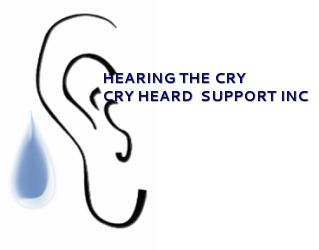
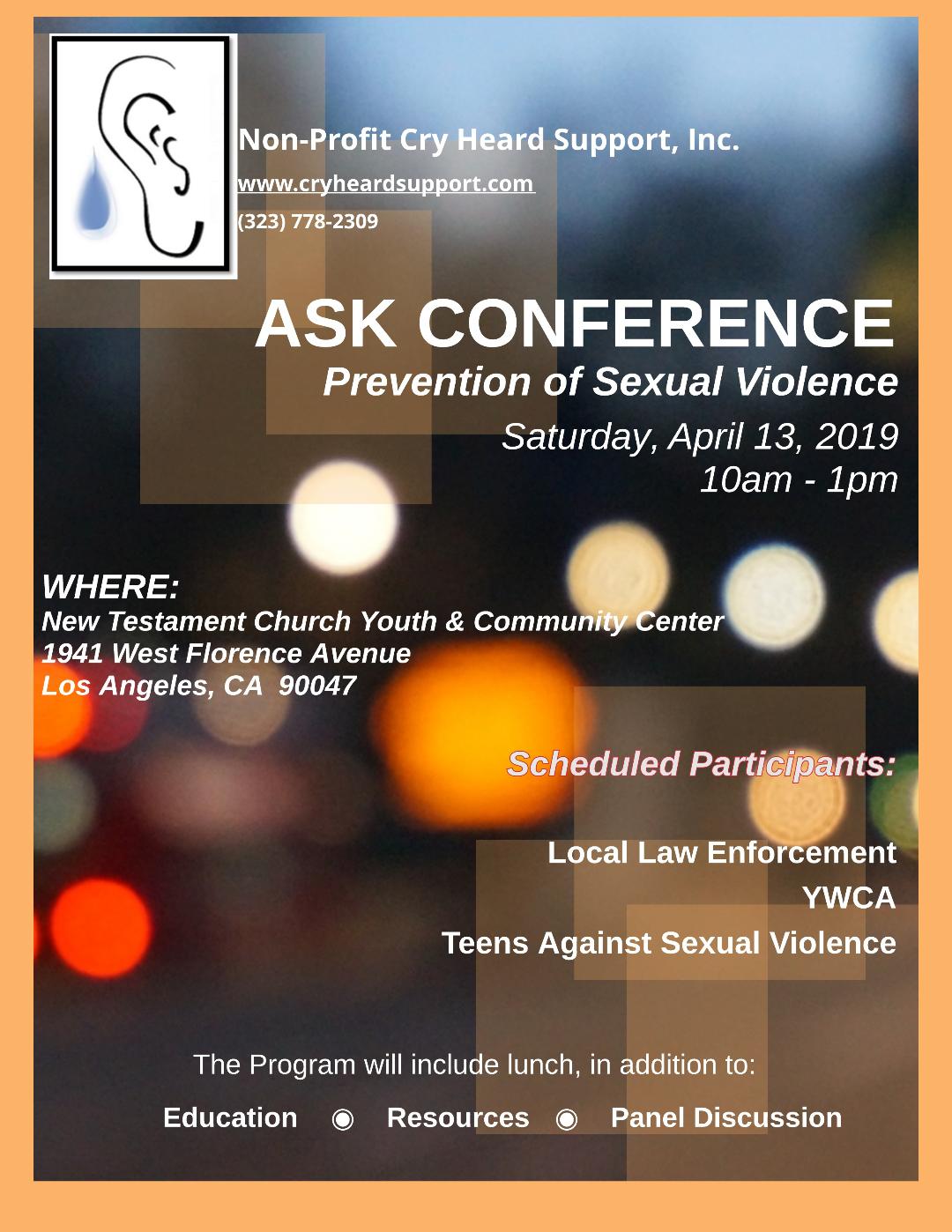
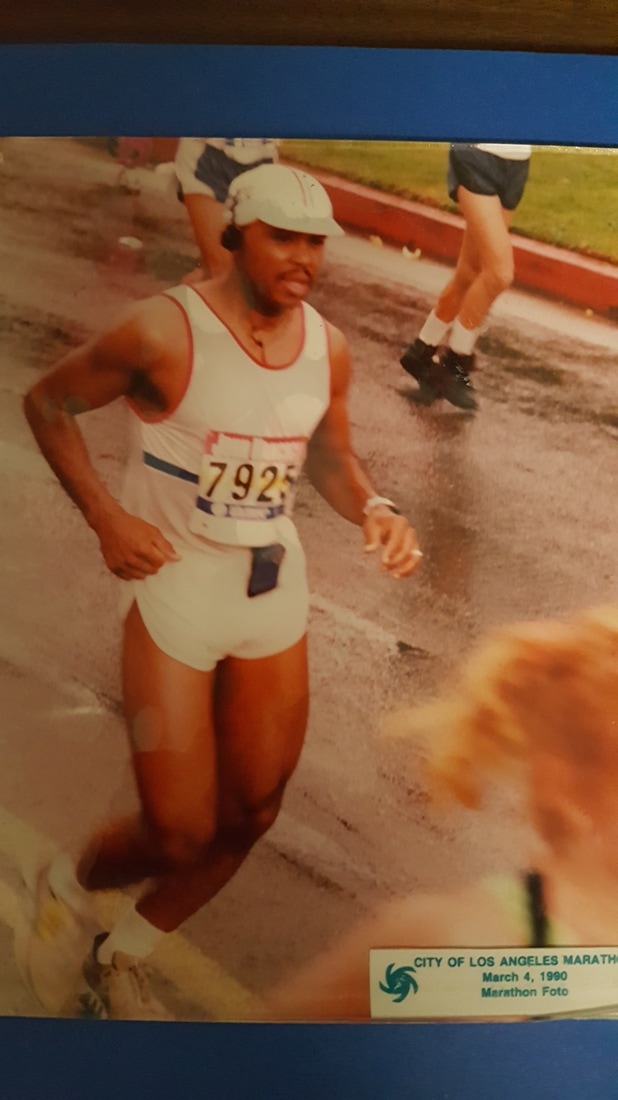
 RSS Feed
RSS Feed
